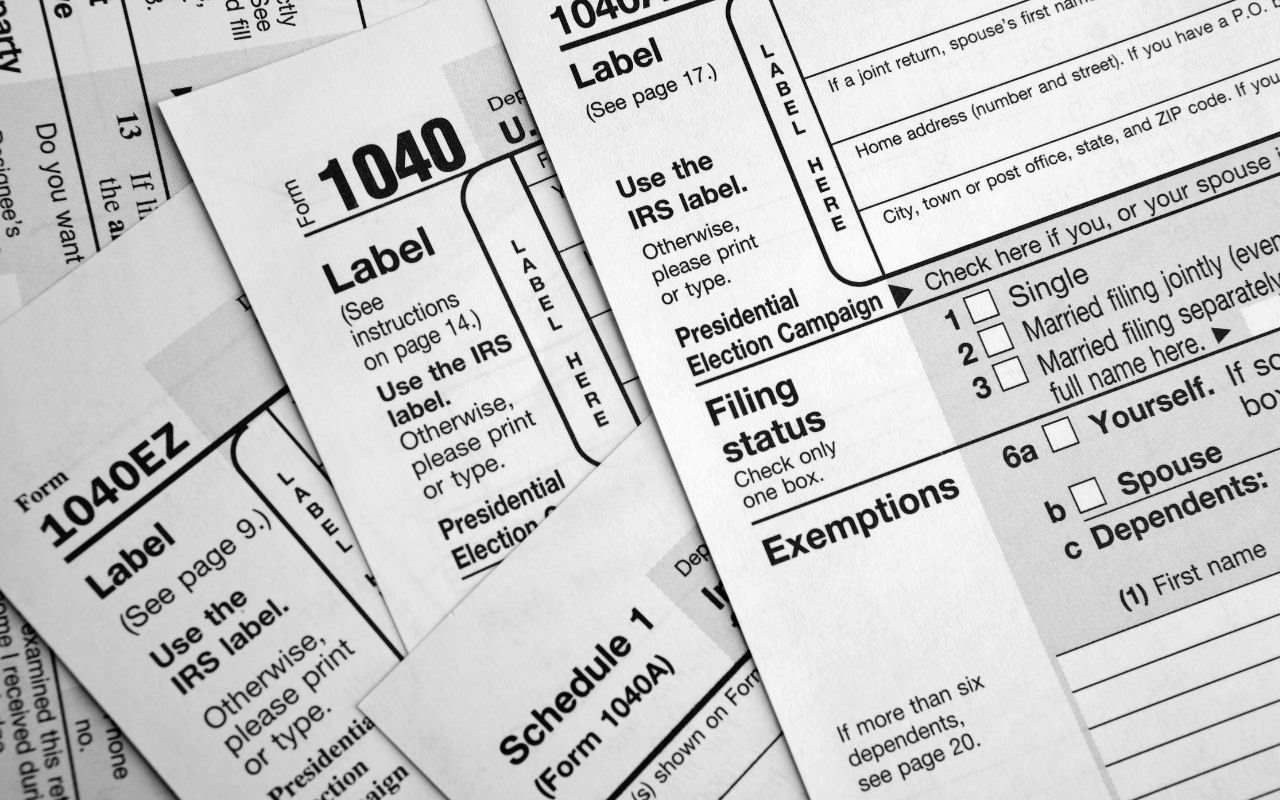How to File Taxes as a College Student: A Brief Guide

College students, need help filing your taxes? Contrary to popular belief, most students benefit from filing taxes by scoring a lovely refund to ease their financial commitment to college. If you are confused by deductions, scholarships, and tax returns, this blog is your guide! I have gathered all the information you need to learn why filing is necessary. I'll share essential tips for scoring tax deductions and other student perks, as well as demystify tax filing in one go.
Create a Bold.org profile and use the scholarship search feature to access hundreds of exclusive scholarships!

College Students Tax Filing Obligations
Do you need to file taxes? If you are questioning whether you have to file taxes or not, your obligations may vary depending on a few factors. Whether it is mandatory or not for you as a student, remember that filing can still be beneficial, even if optional, potentially leading to tax refunds or claiming valuable education credits.
Essentially, when you file a tax return, you have the opportunity to earn money back from your qualified education expenses.
Determining Your Filing Status
Determining your filing status involves considering two key factors: marital status and dependency status as of December 31st of the tax year. Here's a simplified breakdown:
- Single Status: Not married and has no qualifying dependents (you are not responsible for any other person's expenses but yourself).
- Married: If you are a married student, you have the options of filing Jointly (filing with your spouse, combining income and deductions) or filing Separately, which means filing individually, even though you're married.
- Qualifying Widow(er) with Dependent Child: Widowed and have a qualifying dependent child, meeting specific income and time requirements.
- Dependent: Claimed as a dependent on someone else's tax return, usually your parents.
If your total income (single or married) exceeds $12,950, filing a tax return is mandatory. If you are a dependent, you can still find tax-deductible expenses. Remember, filing might be beneficial if your income exceeds $4,250 in 2023.
Please note: these figures provide a general idea. The actual thresholds may vary each year due to inflation adjustments and other factors. It's important to check the latest IRS guidelines for the most current thresholds.
You can also check your status for in-depth information on the official IRS website and find tools and resources to help you file your taxes.
Get Matched to Thousands of Scholarships
Create your Bold.org profile to access thousands of exclusive scholarships, available only on Bold.org.
Create Free ProfileGathering Necessary Documents
Education-Related Documents
- Form 1098-T: This form from your school details tuition and fees paid, which is essential for claiming education credits. Usually, it will be mailed to you, but you can also access it in your student portal.
- Form 1098-E: This form is a student loan interest statement. Gathering statements for potential deductions is essential if you spend on interest payments from student loans.
- Form 8863: This form is specifically for taxpayers who wish to claim education credits on their federal income tax return and have incurred qualified education expenses for higher education. Note: not everyone receives this form.
Income Documents
- W-2 forms: If you are working, you receive this document from employers. They detail your taxable wages and the amount of withholding taxes from your salary.
- Form 1099-NEC or 1099-K: These documents are for freelancers, side hustles, and gig earners. These forms report income received and are essential to maximize your tax return.
- Scholarship and grant information: Gather statements or documentation highlighting scholarship amounts since some might be taxable.
Other Important Documents
- Social Security number: For identification purposes on your tax return.
- Proof of health insurance: Required for some credits and deductions.
- Banking information: For direct deposit of any potential refund.
Remember: Keep receipts for eligible education expenses (books, supplies) if the IRS requests verification.

Exploring Tax Credits and Deductions for Students
As a college student, you can get money back through different tax benefits to help you financially during your education. You could receive a refund or reduce the amount of taxes you owe by maximizing these opportunities to boost your financial situation every year.
Education Deductions
If you're in your first four years of college, you might qualify for up to $2,500 in return from the American Opportunity Tax Credit (AOTC). This tax credit can cover up to $2,500 of your tuition and fees. The Lifetime Learning Credit (LLC) is another option. There is no limit on the number of years you can claim the credit. It is worth up to $2,000 per tax return. Both have rules about who can get them, so check the IRS website for details.
Student Loans Deductions
You can deduct up to $2,500 of the interest you pay on your student loans. Remember, if you make a lot of money, this deduction starts to go away.
Other Potential Deductions
If you're paying off student loans, you can deduct some of the interest paid. And in some states, you can even get a break on sales tax for school supplies.

Reporting Income from Scholarships and Grants
Scholarships and grants can be both financial aid and lifesavers for a college student. However most scholarships and grants do not require paying taxes, there are exceptions. Generally, funds used for education expenses (tuition, fees, required course materials, etc.) are tax-free. This means that you, the eligible student, do not need to return any money.
However, scholarships and grants can become taxable income if you use the money for non-qualified expenses like living expenses, travel, or entertainment. Yet, there are also ways to claim these expenses since students need to do constant research, such as visiting museums, watching movies, or going to the theatre. This is why I personally recommend, in some cases, finding an affordable tax consultant to help you.
So, how do I know if I need to pay taxes on my scholarship or grant? If you are still doubting about what you should do, here are two examples to help you understand whether or not you need to report your scholarship or grant money:
Scenario 1: You have used all your scholarship and grant money for qualified expenses such as tuition and books. There is no need to report the scholarship or grant on your income tax or return!
Scenario 2: Some funds are used for non-qualified expenses such as a vacation or a spa. Then, calculate the taxable amount of the money spent and subtract qualified education expenses from the total received.
One more thing is that a reliable tax advisor will charge a small amount but will help you with these scenarios. A reliable professional will ensure that you get your maximum federal tax return every year, and in most cases, they can take what they charge from your tax return so you can skip paying in advance.
Addressing Income from Part-Time Jobs or Internships
If you're a student who's landed an internship or works alongside studies, you might receive additional forms from your employer or as a freelancer. These forms, such as W-2s from employers or 1099s for freelance work, can provide crucial information about your income. They'll be part of the income statement documents discussed in the previous section. Be sure to gather them along with other necessary paperwork before you start doing your own taxes.
For college students who receive income from freelance or gig work, it's crucial to manage your tax obligations carefully. Understanding how to file as an independent contractor can save you money. This includes correctly reporting 1099 income and exploring potential deductions. Knowing when and what forms to use is key to compliance and smart financial planning for tax season. Consider using tools for checking your 1099 taxes as part of this process.
Understanding Taxable vs. Nontaxable Income
Understanding the distinction between taxable and non-taxable income is essential for accurately reporting income and assuring compliance with tax laws.
It's important to consult with a tax professional or refer to official tax resources like the IRS website to decide whether specific types of income need to be taxed. It will vary depending on your individual circumstances, and remember that it is your responsibility to ensure you comply with the tax laws.
- Taxable income refers to any money earned or received that is subject to taxation by the government. This includes wages, salaries, tips, bonuses, or self-employment income. Generally, most types of income are taxable unless expressly excluded by the tax code.
- On the other hand, non-taxable income is money that is not subject to taxation by the government. This could include gifts, inheritances, child support, and welfare benefits. Some types of income may be partially taxable or entirely excluded from taxation under certain circumstances, such as specific scholarships or refunds for medical expenses.

Exploring Free Tax Filing Options for Students and Online Platforms
Tax software and online platforms provide convenient ways for students to file their taxes accurately and efficiently. These tools guide users through filing, helping them maximize deductions and credits while ensuring compliance with tax laws. The IRS website offers this service to students.
Tips for Organizing Your Tax Information
There are various factors to consider, from educational expenses to earned income from part-time jobs. Here are some valuable tips for organizing your tax information:
Completing Form 1040
If you decide to fill out your own forms, make sure to familiarize yourself with the tax forms commonly used by individuals, such as Form 1040, and review the instructions.
After you have gone through all your bank statements and separated your expenses into things such as tuition, books, and related coursework materials, you will be ready to add the expenses to the form in the "Adjusted Gross Income" or "Taxes and Credits" sections.
These can be found in lines 20-25. The Education-Related Deductions and Credits expenses are eligible for credits like the American Opportunity Tax Credit or the Lifetime Learning Credit.

Reporting Income from Work-Study Programs
Reporting work-study income on your taxes is the same as any other job. If you receive a W-2 form for your work-study job, you'll report your income as you would for any other job. Your wages will be reported in Box 1 of the W-2 form. You'll include this income when completing your tax return, typically on Line 1 of Form 1040.
1099 Deductions
If you received a 1099, there are additional deductions you could claim in your tax return. These deductions include office supplies, equipment, memberships, a percentage of your home or office rent, etc.
If you received a 1099, I highly recommend finding a tax professional to help you guide you through the expenses and the details you will need to provide to maximize your tax return.
Understanding Tax Considerations for International Students
As an international student in the U.S., navigating taxes can feel excruciating. For most college students around the globe, it is advisable to hire a professional to file your taxes. A few things to remember are that most international students must file a Form 1040NR for federal taxes.
Remember: Many countries have tax treaties with the U.S. that reduce or eliminate double taxation. It's essential to note that tax treaties and individual circumstances can significantly affect filing requirements and tax liabilities. Use resources like the IRS website, international student organizations at your school, or online and state tax websites to help file your taxes. As always, to be safe, consult a tax professional to help you ensure you file correctly.

Frequently Asked Questions: How to File Taxes as a College Student
Do I have to file taxes as a college student?
Whether you need to file taxes depends on factors like your income, filing status, and dependency status. Even if it's not mandatory, if you file your taxes, you could still have tax benefits by unlocking tax credits or refunds.
How do I determine my filing status?
Your filing status is determined by your marital and dependency status as of December 31st of the tax year. Consider whether you're single, married, a qualifying widow(er) with a dependent child, a dependent student, or claimed as a dependent on someone else's tax return.
What documents do I need to gather for filing taxes as a student?
You'll need various documents, including education-related forms like Form 1098-T, income statements like W-2s or 1099s, personal identification like your Social Security Number, and proof of health insurance.
What tax credits and deductions are available to college students?
College students can benefit from tax breaks like the American Opportunity Tax Credit (AOTC) or the Lifetime Learning Credit (LLC). These include student loan interest from student loan payments and potential breaks for tuition, fees, and student loan origination fees.
Do I need to report income from scholarships and grants?
In most cases, higher education scholarships and grants used for expenses like tuition and books are not taxable. However, if funds are used for non-qualified expenses, they may be subject to taxation.
How do I report income from part-time jobs or internships?
Income from part-time jobs or internships is reported similarly to other employment income. You'll receive forms like W-2s from employers or 1099s for freelance work, which provide essential information for reporting your income.
Should I consider professional assistance for filing taxes?
While some students may opt to file taxes themselves using tax software or online platforms, others may benefit from a professional, such as a certified public accountant, especially for complex situations or specific questions.
Get ahead of your student loans. Visit Bold.org to apply for multiple scholarships and explore our helpful student resources!